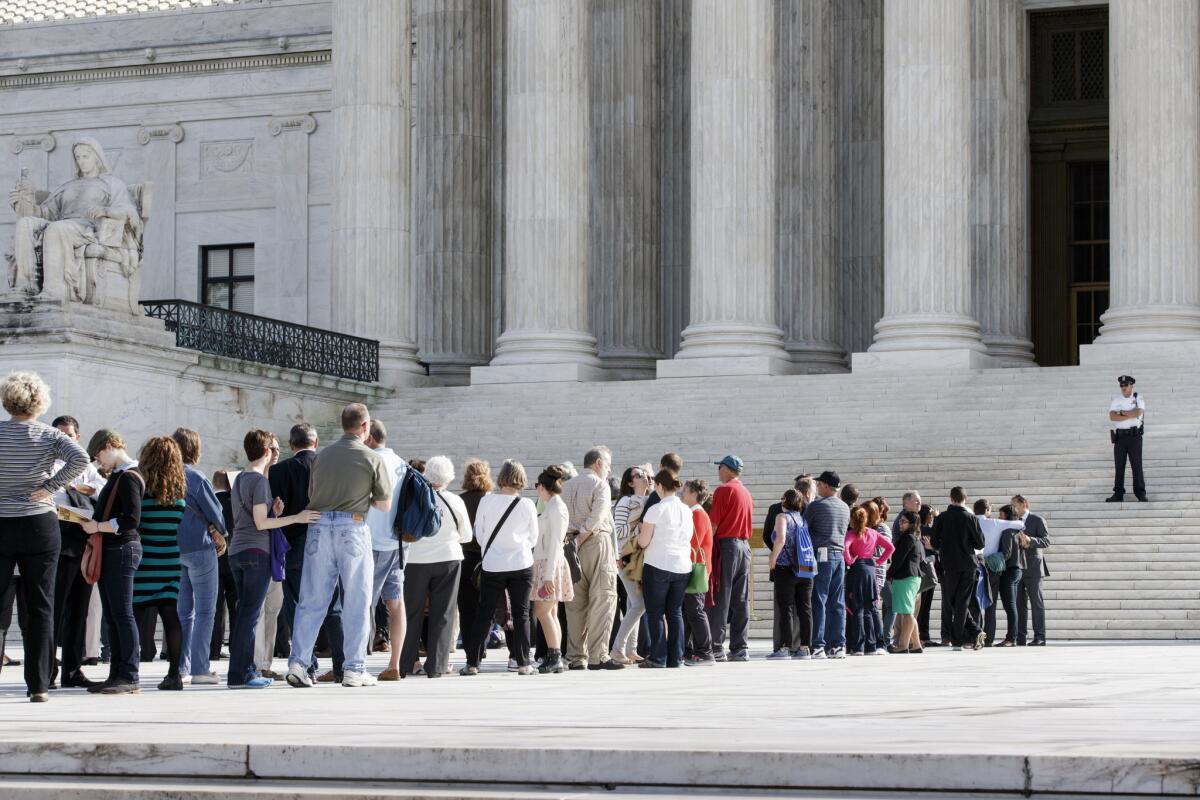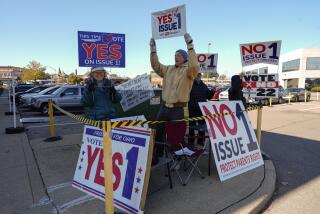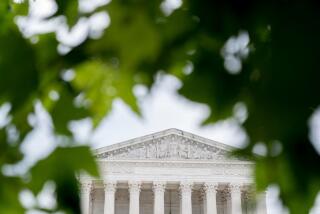High court justices meet to decide whether to hear gay marriage case

The Supreme Court justices met Friday to make a historic decision on whether to hear a case that could decide if the Constitution’s protection of liberty and equality means same-sex couples have a right to marry nationwide.
But first, they must decide which case or cases they will hear this spring to resolve the issue. They had before them appeals from five states: Michigan, Kentucky, Ohio, Tennessee and Louisiana.
No announcement is expected Friday, but could come in the next week.
The Michigan and Kentucky cases look the most promising, legal experts say. Both feature committed gay couples who sued seeking a right to marry.
April DeBoer and Jayne Rowse, both nurses, have been together for 10 years and are raising three adopted children. They won before a trial judge in Michigan, but lost before a divided U.S. Court of Appeals in Ohio.
The Kentucky case has a committed male couple and a name that sounds suited for a landmark: Love vs. Beshear. Timothy Love and Lawrence Ysunza have a home in Louisville and have lived together as a couple for more than 33 years. They, too, won a right to marry from a district judge, but lost before the same appeals court in Ohio. Gov. Steve Beshear is defending the state’s ban on same-sex marriages.
The Supreme Court’s most famous marriage decision came in the 1967 case of Loving vs. Virginia when the justices struck down the last of state laws forbidding interracial marriages. Mildred and Richard Loving sued and won a ruling that declared marriage was a fundamental right.
Now, gay-rights lawyers hope the high court is ready to apply the same principle, and rule same-sex couples have a fundamental right to marry in every state.
The Ohio and Tennessee cases raise a related issue. Gay couples who were married in other states were seeking to win legal recognition for their marriages in their home states. The Louisiana case was appealed directly to the high court without a ruling from the U.S. appeals court there.
The justices may spend a few days or more before announcing which of the cases they will hear. And this month, unlike in October, they appear to have little choice but to issue a ruling, since lower courts are now split on the constitutionality of gay marriage.
But unquestionably, the momentum is on the side of the gay-rights plaintiffs.
In 2012, the justices, though closely split, set in motion a national wave when they struck down a federal law denying benefits to gay couples and by clearing the way for gay marriage in California.
Since then, federal judges from the West to the South struck down state laws limiting marriage to a man and a woman. They did so by deciding that marriage is a fundamental right and that the states could cite no good reason for excluding committed gay couples.
They also noted that many of the gay couples were raising children. And Justice Anthony Kennedy, in striking down the federal Defense of Marriage Act, said it harmed tens of thousands of children who were being raised by same-sex couples.
Kennedy’s comment about the impact has been raised in nearly every case since then. The U.S. appeals courts voided the state bans on gay marriages in Utah, Oklahoma, Wisconsin, Indiana and Virginia.
When state officials appealed, the justices--to the surprise of both sides--refused to even hear the cases. This had the effect of legalizing gay marriage in two-thirds of the nation. It would also be seen as an admission of defeat by the court’s conservatives.
In recent weeks, only Justices Antonin Scalia and Clarence Thomas have dissented when states sought last-minute orders seeking to block same-sex marriages.
But in November, the U.S. 6th Circuit Court of Appeals in Ohio parted company and upheld the traditional marriage laws in Michigan, Ohio, Kentucky and Tennessee. Judge Jeffrey Sutton said social change should be decided through the democratic process, not by courts.
Though a setback for the gay-rights movement, Sutton’s opinion put the issue squarely before the Supreme Court again. All the justices say the U.S. Constitution should not mean one thing in one region and something different in the other regions.
Starting Friday, they will try to finally resolve that difference.
On Twitter: @DavidGSavage
More to Read
Start your day right
Sign up for Essential California for news, features and recommendations from the L.A. Times and beyond in your inbox six days a week.
You may occasionally receive promotional content from the Los Angeles Times.







